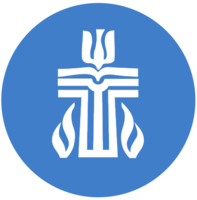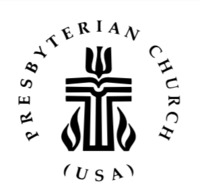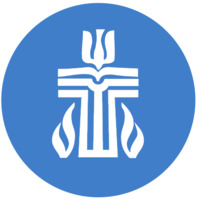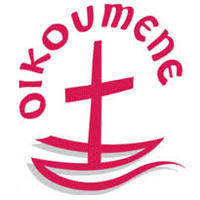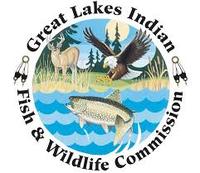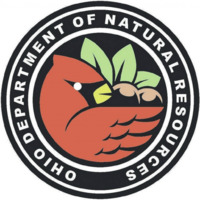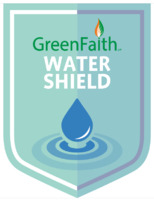Search
93 items
-
San Diego Creation Care Team Success Stories
Catholic Climate Covenant has created two short videos to discuss how different churches in the San Diego diocese in California have worked to be better stewards of God’s creation. The parish of Our Mother of Confidence in San Diego, California, has taken action to reduce water and energy usage while the Saint James Parish and Academy in Solana Beach, California, has implemented environmentally conscious projects and initiatives in their community. -
God’s Gift of Water
Creation Justice Ministries encourages Christian communities to consider water as a sacred gift from God that connects and sustains all life. They have created a free Christian education resource on water that includes liturgical resources, sermon starters, and ideas to take action. -
Pope Francis and Environmental Leaders Forge Vision for Global Action
Environmental leaders, activists and advocates gathered with Pope Francis for a two-day Vatican-organized conference with hopes to emerge with a shared vision for protecting our planet. The conference was inspired by the third anniversary of the Pope’s encyclical and was attended by political and religious leaders, scientists, economists and heads of civil society organizations. Inspired by the call for unity and action in the encyclical, UN Environment also introduced their Interfaith Rain-forest Initiative at the conference. -
Columbus Catholic School becomes Designated GreenSpot School
The GreenSpot School designation indicates that a school has taken initiatives to educate their students and staff about sustainability, water issues, conserving energy, reducing waste, and green transportation. St. Mary School Catholic school has become the first in Columbus to earn this designation. They have implemented a recycling program, local garden, and composting, which qualified them to become a GreenSpot School. They have created a short video of students discussing their engagement and staff discussing the impact of becoming a GreenSpot School. -
Water
The Presbyterian Church (U.S.A.) Presbyterian Mission website provides some helpful resources on critical water issues, with a special focus on the problems that result from fracking. Included are additional resources to learn more about fracking. With regard to community specific issues, they provide suggestions to encourage residents to investigate, educate, and act to take appropriate measures to alleviate the problems. -
Report and Recommendations on Limited Water Resources and Takings
The 216th General Assembly of the Presbyterian Church U.S.A. put forth this report on recommendations regarding critical water issues. The first half discusses water with regard to ethical considerations and sustainability. The second part provides an action/study guide that is designed for individual use as well as educational purposes. -
Restoring Creation for Ecology and Justice
This report was adopted by the 202nd General Assembly (1990) Presbyterian Church (U.S.A.). Their Committee on Social Witness Policy urges the assembly to adopt specified policies within the document. The report covers of multitude of critical environmental issues, with sound policy recommendations and actions that congregations can take to support the myriad of sustainability issues. -
WCC Executive Committee: global biodiversity crisis reaches urgent level
This article from the World Council of Churches discusses the current biodiversity crisis. The majority of land surfaces and ocean areas are significantly modified, and over 85% of the wetlands are gone. The following excerpt notes how this subsequently affects the poor and vulnerable:
"The statement notes that, increasingly, the drive for relentless expansion built into dominant economic systems are endangering the survival of many of God’s creatures. 'Ultimately our significant and adverse impacts on ecology will impact humanity’s own future,' the statement reads. 'Already they are destroying the very basis of sustenance of our income-poor, vulnerable and Indigenous sisters and brothers, who contribute least to the ecological damage for which human beings are collectively responsible.'" -
Water
The World Council of Churches discuss the issues of access to fresh water in various parts of the world and its impact on the survival of many communities, as well as biodiversity in general. The following excerpt provides more detailed information on this environmental injustice:
"The survival of 1.2 billion people is currently in jeopardy due to lack of adequate water and sanitation. For the same reason, the lives of 6,000 children are lost every day. For those struggling with HIV/AIDS, poor or no water is yet another barrier to overcome.
In today’s world unequal access to water causes conflicts between and among people, communities, regions and nations. These conflicts exist in areas where there is a lack of water or where the main part of the water resource is polluted. Very often in these situations the poorest people bear the heaviest burden." -
Wanted: Innovative Farmers to Help Slow Algal Bloom on Lake Erie
The Christian Science Monitor has written an article discussing how agricultural nutrients in the Maumee River, Lake Erie’s biggest source of pollution, are reaching record proportions. Most nutrient pollution is caused by large storms, and with climate change, these storms are becoming increasingly more common. The USDA reports that farmers are making headway toward reducing nutrient pollution on a voluntary basis, but many researchers say that these efforts are not sufficient. A recent report suggests additional outreach, an increased focus of conservation dollars, and mandated soil testing.
Wetland restoration – bringing back bits of the Black Swamp— can play a pivotal role in clearing algal bloom in Lake Erie. The Black Swamp Conservancy is currently working on turning 60 acres back into swamp in northwestern Ohio. William Mitsch, a retired Ohio State University professor and wetlands expert, hopes to eventually restore a tenth of the Black Swamp (about 100,000 acres) to provide a substantial cleaning of Lake Erie. -
Cleveland's St. Casimir Church Implements Green Infrastructure Practices
St. Casimir Church of the Cleveland Catholic Diocese wins the Northeast Ohio Regional Sewer District's Green Infrastructure Grant! The church will be implementing permeable pavers, and rain water basins with the grant. This effort helps give stormwater new life and redirect water pollution. St. Casimir's expresses gratitude for their community's support. Read more at the link below. -
The Importance of Water to Faith Communities, and How to Conserve it!
The Ohio Interfaith Power and Light provides information on the spiritual importance of water, along with a teaching activity for the topic. The attached also includes tips on how to help your congregation conserve water. -
Saving Buffalo Reef
This 11-minute video, by the Great Lakes Indian Fish & Wildlife Commission (GLIFWC), informs the viewer of the natural, cultural, and economic importance of Buffalo Reef. This reef is located off the Keweenaw Peninsula, Michigan, in Lake Superior. Buffalo Reef is currently under ecological distress due to local mining activities. Current Tribal, State, Federal, and Academic efforts are underway to help restore this significant environmental feature, as documented in this video. -
Interfaith Rainforest Initiative
From the organization's website: "The Interfaith Rainforest Initiative is an international, multi-faith alliance that aims to bring moral urgency and faith-based leadership to global efforts to end tropical deforestation. It is a platform for religious leaders to work hand-in-hand with indigenous peoples, governments, civil society and business on actions that protect rainforests and safeguard those that serve as their guardians." The initiative focuses on raising awareness, mobilizing action, and influencing policy. -
Engaged Organizations: Stratford Ecological Center
The Stratford Ecological Center is an organic farm and nature preserve that provides education sessions, tours, and hiking trails to the public. They also offer various workshops and classes on an ongoing basis.
Trinity Catholic Elementary School 4th and 5th graders participation each year in a 5-day environmental camp "Messages of the Earth" at the Stratford Ecological Center. -
Engaged Organizations: Kenyon College Brown Family Environmental Center
The Brown Environmental Center at Kenyon College offers both self-guided and educational sessions that showcase their diverse range of natural habitats that are maintained at the center.
St. Vincent de Paul in Mt. Vernon, Ohio makes annual trips for their K-6 students. -
Bloomberg Business Posts Infographic to Show “What’s Really Warming the World?”
Occasionally, an outstanding graphic emerges to help us understand some of the complexities of climate science, such as this recent series of graphs published by Bloomberg Business. If you have wondered how all the various factors and forcings involved in global warming interact, these infographics based on data from NASA’s Goddard Institute for Space Studies are very helpful. -
Muslims and Water Conservation
The United Nations recognizes World Water Day on March 22. The Muslim community is taking this message to heart with discussions of water conservation. The following excerpt provides a brief summary of the Muslim khutbah with regard to the topic of water scarcity:
"The purpose of today’s khutbah is to remind us that the conservation of water and more broadly environmental consciousness should be an integral part of what it means to be a conscientious Muslim. An environmentally conscious Muslim is someone who lives in reverence and harmony with nature and uses water and all other natural resources frugally and sparingly." -
Water Shield
Water Shield is a program hosted by GreenFaith that helps congregations learn how to conserve water as well as maintain high water quality. This program promotes stewardship, and can help gain a community recognition for their efforts in the environmental awareness world. Water Shield is an eco-merit badge that is bestowed upon faith-based institutions that have taken steps to conserve water, protect water quality, and mobilize its members and community to do the same at home. -
Changing the Columbia River Treaty
Many groups, including faith communities, have called for a restructuring of the Columbia River Treaty. The original treaty was written in 1964, and has become outdated. The people calling for the change want the river to be valued for its ecosystem services that were not included in the original treaty. -
World Help Providing Water for Kirinda, Uganda
World Help, a Christian organization, is raising money to provide clean drinking water to the people of Kirinda, Uganda. They are attempting to fund three major projects, a water well, piping, and irrigation. The lack of clean sources of water for the people who live here is causing diseases and additional hardships. -
A Sermon for World Water Day
Susan Barnett, founder of Faiths for Safe Water, brings attention to World Water Day by highlighting award-winning filmmaker and photographer, Haik Kocharian. Haik recently releasing, “Blessed by Water,” showing rare images of water in tradition, ceremony and spirituality as celebrated by the Christian Orthodox community in Ethiopia. Susan continues to discuss the concerns of clean water worldwide: 663 million men, women and children are forced to drink low quality water; and one third of the world's population don’t even have the dignity and safety of toilets. The article concludes by encouraging church leaders to use their collective voices to advocate for increased access to safe water and sanitation in order to improve global health, nutrition, poverty, gender equality, food security, human security, and peace. -
World Water Day Synopsis
The United Nations and the global community in general recognize World Water Day as a reminder that much of the world faces a global water, sanitation and hygiene crisis. 663 million people—comprising mostly the poorest and most marginalized in the world—live without access to safe drinking water. In addition 2.4 billion people lack access to improved sanitation. The article suggests various ways that individuals can contribute to improving the water conditions in these areas. -
Christians and Endangered Species
Throughout time, it has often been difficult to reconcile concepts from both biology and theology. This article focuses on the critical impact of endangered species with regard to various Christian religions. Citing biblical text, especially the story of Noah’s Ark, many religions have deemed the preserving and caring for all living creatures to be of utmost importance.





